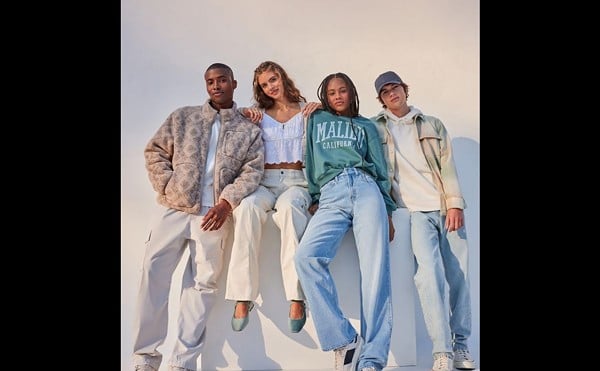|
When I arrive, songster/guitarist Mark Utley is M.I.A. Actually, he's upstairs tucking one child in bed. As a rule, youngsters aren't drawn to me. Frequently, when I hold babies, they twitch, then cry. But when they do like me, they really like me, tugging me, hugging me. Such is the case when I meet another of Utley's girls. In the den, she gazes doe-eyed, her smiley face trapped in that famous curious "kid look."
Then Utley appears, giving her a bear hug, sending her on her sleepy way. Sinking into the crimson couch, he explains that he's a family man with four children at home. Laughing, he says, "I'll sleep when I'm dead."
When he talks, smile lines, those telling creases, form on the sides of his eyes. His manner is that of a thoughtful man, and beneath that depth rests an obvious vast knowledge of music. He says, "I was pretty much always writing songs from early on."
Originally from Evansville, Ind., Utley is a Rock veteran. In 1979, he joined the band presently named Matinee Idol. Utley says, "They were alarmingly good ... they played what I would consider the best of the '60s and '70s stuff."
Think of The Who and The Clash.
Perhaps Utley is most well known for his work with Stop the Car, an amazing, progressive "graveyard" Garage band that introduced Alternative music to the scene before the label "Alternative" even existed. Ahead of its time, STC was a largely successful '80s band with a cult following still alive today.
But the rowdy, artistic drive behind STC was something that Utley reconsidered over time.
"Stop the Car was informed by Goth bands and Alternative bands, and there was a certain pretense to it," he says. "That, combined with the theatrics of it, created a divide between us and the audience."
In 1992, Utley moved to Cincinnati, bringing with him the desire for musical change.
"Basically I wanted more of an outlet for songwriting," he says.
By 1994, Utley formed Pale Halo, a band with influences as diverse as early Cocteau Twins, Dead Can Dance and Portishead, while still joining STC for yearly reunion gigs.
After the 2005 reunion, Utley says, "I got the bug again. But when I came back, there was no outlet for me to play that loud, electric, amplified music." Through time, he was "struck by the warmth and the human element in acoustic music ... communal thing where people can join in and be a part of it."
His Dad was heavily into Country and Utley absorbed the sound by default. Early on, he disliked the style but later revisited songwriters like Merle Haggard, Patsy Cline, Hank Williams Sr. and Johnny Cash. Embracing Roots, Utley studied Celtic, African-American and a stew of historical, culture-thick music.
"In that old music, there's a real humanity, a warmth and the heart that is missing so much from today's music," he says. "It comes from a time when there wasn't a music industry — it was more of a cultural community or family thing. Songs would mutate over generations; it was the way people kept their stories alive. When you can tap into that, it's pretty exciting."
With that in mind, Magnolia Mountain formed in 2006, including Utley on vocals and acoustic guitar, Rockne Riddlebarger (lap steel), Bob Lese (mandolin, harmonica), Jordan Neff (electric guitar, accordion, piano), Bob Donisi (upright bass) and Matt Frazer (drums, percussion). Creating a sound mix of Folk, Americana and Country, Utley says, "It all came together kind of organically."
He pauses. Peacefully, directly, he says, "It's a big confidence boost as a songwriter that guys that have these kinda chops are interested in playing my songs. It makes me feel like I'm on the right track. It's fun, we enjoy it and it's a great outlet. With that attitude, it grows on its own."
From Alternative Rock to heart, Utley continues his career, and when his oldest daughter enters the room, he leans back on the couch, listening to her voice, tuning in.
MARK UTLEY AND MAGNOLIA MOUNTAIN (markutley.com) play every Wednesday in November at the Southgate House's Junie's Lounge.





